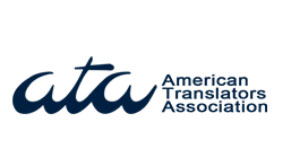Online Appointments & Translation
24/7/365
CONTACT US
(719) 532-0300
3720 Sinton Road Suite 120, Colorado Springs, CO 80907
Southern Colorado's Premier Foreign Language Service Provider Since 1978
FAQs
Interpreting FAQ’s
- Why do you need an interpreter?
Title VI of the Civil Rights Act of 1964 establishes the need for professional healthcare interpreters to ensure meaningful access to healthcare for Limited English Proficiency (LEP) patients. The Policy Guidance issued by the Office for Civil Rights in 2000 provides the strategies to help healthcare organizations meet their obligations for culturally and linguistically appropriate services.
If your operations require person-to-person communication with a person whose English is limited, you need the services of an interpreter. Involving a complex skill set, interpreters must convey not only all the elements of meaning, but also the intentions and feelings of the original, source-language speaker. The end result of their labor should allow the target-language listeners to hear, perceive and experience the message as it was originally expressed in a language they understand.
At GlobeLink FLC, the credentials of all potential interpreters are verified before they undergo a fluency assessment, both in English and in their native language. For those with limited interpreting experience, in-house training is then provided in the skills required to provide accurate, professional interpreting services in a wide variety of situations.
Here’s an interesting paper commissioned by The Access Project in Boston and published in 2002: “What a Difference an Interpreter Can Make: Health Care Experiences of Uninsured with Limited English Proficiency”
- What is the difference between a certificate of completion and national certification?
CERTIFICATE OF COMPLETION:
A person becomes a trained interpreter when they earn a Certificate of Successful Completion after taking a course of study or training (minimum of 40 hours) such as the TCI course that we offer. Once the person has successfully completed the course or training and has received their Certificate of Successful Completion, the person is a professionally trained interpreter and a CERTIFICATE holder. The interpreter CANNOT refer to themselves as a Certified Interpreter.
See Website
NATIONAL CERTIFICATION:
National Medical Interpreter CERTIFICATION is a structured testing process through which a certifying body certifies that an interpreter meets a specified standard, based upon a series of requirements. The National Board of Certification for Medical interpreters (NBCMI) and the Certification Commission for Healthcare interpreters (CCHI) are the only recognized bodies in the United States which can issue the Medical Interpreter National Certification credentials. Once the interpreter has successfully completed this process by passing certification exams (NBCMI and/or CCHI), the interpreter is awarded a credential and may then call themselves a Nationally Certified Interpreter. Globelink FLC is a proctor of the CCHI exam.
See Website
- What is Legal and Court Interpreting?
Legal, Court, or judicial interpreting takes place in courts of justice, administrative hearings, and wherever a legal proceeding or consultation is held. One example of legal interpreting might be the consecutive interpretation of witnesses’ testimony for recording by a Court Reporter; another would be the simultaneous interpretation of trial proceedings for one person or multiple people in attendance.
Depending upon the regulations and standards adopted by different states and venues, court interpreters usually work alone when interpreting consecutively, and as a team when simultaneous interpretation is required. In addition to a practical mastery of the source and target languages, familiarity with the law and a thorough knowledge of legal and court procedures is required of court interpreters, as is the street slang in both working languages from the worlds of drugs, weapons, and other illegal enterprises. They often are required to have formal authorization to work in State Courts, and a federal certification to work in the Federal Courts.
- What is Medical Interpreting?
Medical interpreting is a specialized branch of public service interpreting in which communication between medical personnel and the patient and his or her family is facilitated by a professional interpreter. The medical interpreter must have a strong knowledge of anatomy, common medical complaints and procedures, patient interviews, and the medical examination process in order to effectively serve both the patient and the medical personnel. Medical interpreters are also cultural liaisons for people whose view and experience of medical intervention is often very different from what they will experience in the United States.
- What is Conference Interpreting?
Conference interpreting provides interpretation of the presentations made at international meetings and conferences, allowing comprehension and participation by all attendees in the conference languages, no matter what their native language might be. Although historically done in consecutive mode, the advent of readily available audio (and more recently wireless and video) technologies allow for the simultaneous interpretation of conference presentations into one or many languages.
Conference interpreters typically work in teams, ideally in soundproof booths from which they watch the presenters, listening through headsets and providing simultaneous interpretation into a microphone, which is relayed, in turn, to the headsets of participants who choose to listen in the offered language. Since the mental effort required of the interpreters is intense, they switch between active and passive modes every 20 to 30 minutes, assuring the highest possible quality of interpreting.
Conference interpreters generally work into their native language, and relish the opportunity to review documentation related to the presentations prior to the conference, since these are often highly specialized or technical presentations for which terminology research yields a far richer content for the recipients of their interpretation.
- What is Business Interpreting?
Increasingly, the buyers of our goods and services, or the providers of the goods and services we use in business are located in foreign lands. Whether negotiating the terms of a contract or going over design details, accurate communication is essential. A professional interpreter can save your company the expense and time that such misunderstandings can cost. Additionally, imagine the value of a professional interpreter’s input into your targeted marketing campaigns. Focus groups comprised of members of your target market group can be interpreted simultaneously, while the facial expressions and body language are readily observable by your marketing professionals.
- What is Public Service/Community Interpreting?
Also known as community interpreting, this service is often required in order for non-English speakers to negotiate services such as legal representation, health care, local government, social services, housing, environmental health, education, or public welfare. In community interpreting, factors such as the emotional content of utterances, the speaker’s cultural background and social surroundings, and the power relationships among participants make the intervention of a qualified interpreter indispensable. Interpretation by a friend or family member is often used in such cases, often to the detriment of the person in need of services, since such an emotionally involved person will, more often than not, diminish or exaggerate the person’s statements in an effort to manipulate the outcome.
Interpreting FAQ’s
Translation Process
- Analysis and Quotation
We conduct a word count, review the scope and complexity of the project, and calculate the turnaround time. Your quotation will be ready within 24 hours. Timelines for completion of translation services vary, and will be determined on an individual basis. We can handle rush requests.
- Translation
We assign your document to a team of professional translators with expertise in your document’s subject area.
- Review, Editing and Proofreading
Whenever needed, or if document exceeds 5,000 words, your translation is carefully reviewed and edited by a second translator.
- Formatting and Delivery
Your document is delivered in the original format, or any other you care to specify (MS Word, PowerPoint, Publisher, QuarkXpress, HTML and many others).
Translation Process
Class FAQ’s
- I am a beginner. How long will it take me to be fluent?
Learning a new language doesn’t happen overnight. Many factors affect the overall length of time a person might need to go from a novice level to advanced. Our chart should help you establish the approximate amount of hours you will need to achieve the results you are looking for, however, keep in mind that this is only a guideline since people learn at a different pace from one another.
- When can I come to class?
We can plan a class to fit your busy schedule. Do you need to come to class in the morning while your child is in school? No problem. Do you only have time on one evening during the week? We can arrange the class for the time of your choice. Some of our instructors can even accommodate you on week-ends.
- Can I check out one of your classes?
Absolutely. Please call the front office to arrange to audit one of our classes at no charge. We will only ask that you do not disturb or interrupt the lesson you are to audit. Feel free to ask the instructor any questions at the end of class or stop by the front office before leaving if you wish to receive additional information.
- I have taken classes a long time ago, I do not know what my level is, how can I tell?
Please click here to see the ACTFL equivalency and level description chart.
- I already speak fluently, but I need to practice speaking the language. Do you have such a class?
We can easily arrange a one-on-one class that will cover only the conversation aspect of the language you know.
- Do you provide classes that would help with my accent? How long will it take me to be able to see any results?
Thank you for asking. Our pronunciation and accent reduction classes are perfect for your situation. We have helped countless people improve their English, both for business purposes, or just because they have reached a point in their learning process where only taking lessons will help them improve their pronunciation. Let our instructors help you to truly “hear” what you are saying.
Results differ from person to person, however, you will start to notice some difference from the very beginning, simply because you will be able to single out some of the words you are saying incorrectly and work on them right away. Of course, it takes time to correct “bad habits”, but with dedication and perseverance, you will find that meeting for only 90 minutes each week you will be repeating yourself less and less and be able to obtain reasonable improvement within 6 months.
- Can I get a discount for classes?
If you know you will be taking classes for a prolonged period of time, paying for a larger amount of class hours up front allows you to benefit from the additional discount we extend to our students.
- Will I need to buy a book?
During your first class your instructor will assess you and will be able to discuss with you the need to purchase a book or not. Some instructors work with materials they prepare themselves and there is hardly a need for a book during the first few lessons. We believe that at some point however a book is extremely useful and directly impacts your progress. You should discuss your goals with your instructor and together you will be able to decide what text book will help fulfill those needs best.
- What happens if I am unhappy with the instructor you have assigned me?
Our class coordinator wants to ensure that you will be absolutely satisfied with the choice that is made when assigning your class. She will ask you questions that will allow her to pair you with the right instructor, however, if you are not satisfied, be sure to contact her as soon as possible so that we might either reassign your class or work on the issues directly so that your needs are met.
Your satisfaction is guaranteed!
- My nephew is going to be coming from China and living with my family for the next few years. He will attend a local high school but we are told that he will need to take additional ESL lessons in order to be able to catch up with the other kids. Can you help?
Of course. We offer ESL lessons for kids from different countries now living and attending school in Colorado Springs. The school is, at times, unable to provide the amount of ESL instruction the student needs, therefore we can help with additional lessons, evaluating the student at first which enables us to provide the best learning tools and lesson plan.
- Do you offer the I20 form for foreign students?
We are not able to provide you with the I20 form presently but we are considering looking into it for the near future.
- I own a local business and I would like to offer Spanish classes for my employees. Can one of your instructors come to our location?
Absolutely. We offer corporate, on-site classes to fit your needs. We can arrange classes to fit your schedule and that of your employees. All we need to know is how many people you need lessons for and their level. If necessary, we can schedule three different classes, one for beginners, one for intermediate and one for the more advanced group of students so everyone can learn at the appropriate pace.
Class FAQ’s
Proud Members of:





